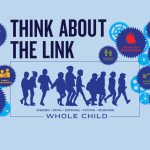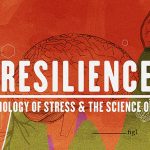In the United States, suicide is the 10th leading cause of death — with more than 2,000 14- to 18-year-olds dying every year by suicide, and accounting for about one of every three injury-related deaths. That’s the equivalent of losing a large high school’s worth of teenagers to suicide, year after year. These numbers demand our attention.
“Work hard on keeping the conversation channels open. Having a trusted and caring adult is critical for every child,” writes Sandra Chafouleas in her new blog on Psychology Today.
Schools play a critical role in fostering emotional safety for adults and students. In responding to COVID-19, schools planning to reopen must include efforts that define a safe school environment as having not only physical elements such as cleaning practices, ventilation conditions, and physical distancing protocols, but also emotional elements.
The Neag Foundation has provided the UConn Collaboratory on School and Child Health (CSCH) with a two-year grant to facilitate work in the Think about the Link Project. The project builds from the CDC’s Whole School, Whole Community, Whole Child (WSCC) model to fully acknowledge the many interrelated components involved in supporting student well-being. The Think about the Link Project offers practical tools to help schools enhance their work by incorporating the WSCC model in decision-making across academic, social, emotional, behavioral, and physical supports.
Graduation, prom, banquets, trips. Our teenagers are lamenting so many lost milestones. My daughter, a high school senior, recently summed up her thoughts about graduating amid a pandemic: “It feels like the light at the end of the tunnel was just snuffed out.”
As a psychologist and the mother of two college-aged students, I am concerned about my children’s future emotional well-being. I know that the late teens to early 20s are a time when the majority of many lifetime mental health disorders take hold.
Approximately 70 school, behavioral health, community, and research leaders from across the state gathered at the University of Connecticut campus in Storrs on Wednesday, Oct. 23, 2019, to discuss school and community responses to childhood trauma and how to align work around trauma-informed schools in Connecticut.
The following piece originally appeared on the American Association of Colleges for Teacher Education (AACTE)’s Ed Prep Matters blog, authored by Neag School Professor and Director of Research Sandra Chafouleas.








